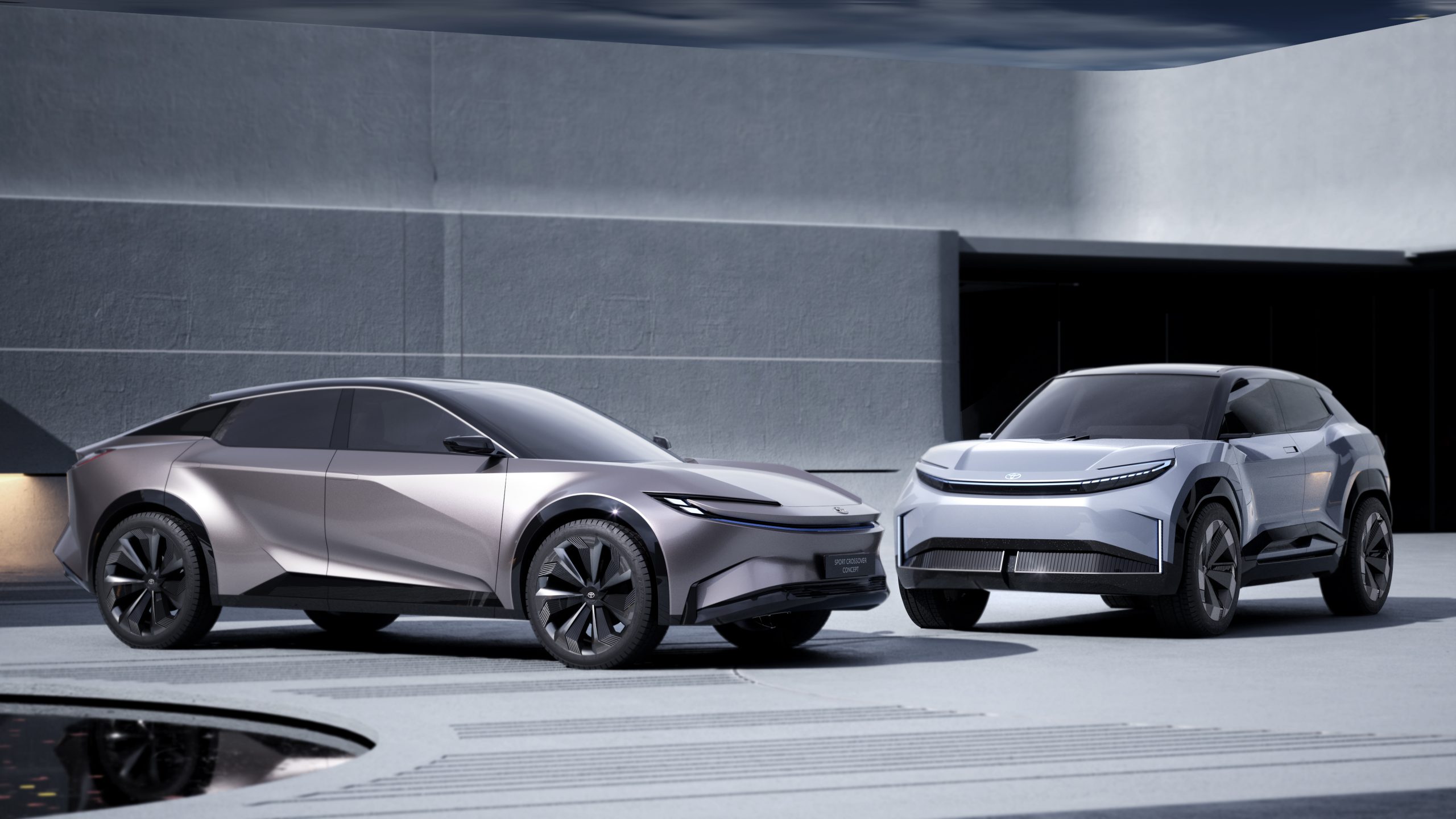 Combo Sport-Crossover Concept urban-suv. Foto: Toyota
Combo Sport-Crossover Concept urban-suv. Foto: Toyota
Toyota Motor Europe has unveiled details of the upcoming products and technologies that will take the company further down the road to zero emissions in Europe. By 2026, Toyota plans to introduce six models with all-electric drive in Europe. The two concept vehicles Urban SUV Concept and Sport Crossover Concept provide a preview of this. The two models join the Compact SUV Concept presented last year and the already launched bZ4X . This means that four of the six models are now known. “The European market is very diverse today,” said Andrea Carlucci, Vice President of Toyota Motor Europe, in Brussels. “But our goal is to achieve 100 percent CO₂ neutrality across our entire model range by 2035 – in just twelve years. We have committed to this and are determined to achieve this goal.”
Six electric vehicles by 2026
Toyota is pursuing a multi-pronged approach to climate neutrality at a global level. This includes offering different powertrains tailored to the respective customer needs, market conditions and local infrastructure in different regions of the world. The portfolio includes electric hybrid, plug-in hybrid, battery and fuel cell systems, hydrogen combustion engines and e-fuels.
Next-generation batteries after 2026
The company is working on a series of new batteries. The first is a performance battery with a conventional structure, which should offer almost twice the range of the battery from the current bZ4X – with a simultaneous cost reduction of 20 percent. This is followed by a battery that combines good quality with low prices and will contribute to the spread of electric vehicles. It has a new shape and a bipolar structure and uses cheaper lithium iron phosphate (LFP) as its main material. Compared to the bZ4X, Toyota is aiming for a 20 percent increase in range and a 40 percent reduction in costs. The third battery type to be introduced is a high-performance battery with bipolar technologies and a cathode with a high nickel content. Toyota expects even lower costs and an even greater range compared to the performance battery.
Breakthrough in solid-state batteries
Regarding the prospects of Toyota’s first solid-state batteries, Andrea Carlucci said: “We have achieved a technological breakthrough in the durability of solid-state batteries, which has been a challenge for many years. We are currently developing a process for series production and are aiming for market launch by 2027-2028, with a production capacity of tens of thousands of vehicles.”
A charging time of 10 to 80 percent of just ten minutes is planned from the outset
Toyota is also developing further technologies for the production, engineering and design of the next generation of electric vehicles. At the Kenshiki Forum, the company presented the Toyota FT-3e Concept for the first time in Europe, an engineering study that shows the entire spectrum of future technologies – with minimized weight, optimized aerodynamic performance and controlled costs. The FT-3e explores how cars could be networked with society in the future and enable the transmission of energy and data – and thus offer more than just mobility.